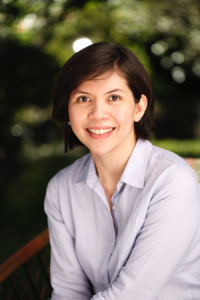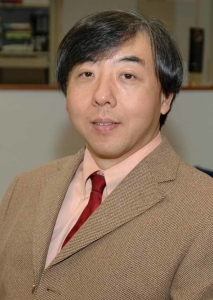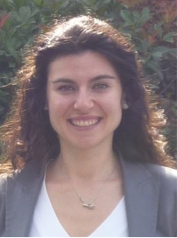Working Group Participants
2. Suha Al-Hassan, Hashemite University, Amman, Jordan and Emirates College for Advanced Education, Abu Dhabi, United Arab Emirates
3. Dario Bacchini, University of Naples “Federico II”, Naples, Italy
4. Marc H. Bornstein, National Institutes of Health, Bethesda, Maryland, United States
5. Lei Chang, University of Macau, Macau, China
6. Kirby Deater-Deckard, UMass Amherst, Amherst, Massachusetts, United States
7. Laura Di Giunta, Rome University ‘La Sapienza’, Rome, Italy
8. Kenneth A. Dodge, Duke University, Durham, North Carolina, United States
9. Jennifer W. Godwin, Duke University, Durham, North Carolina, United States
10. Sevtap Gurdal, University West, Trollhättan, Sweden
11. Daranee Junla, Chiang Mai University, Chiang Mai, Thailand
12. Jennifer E. Lansford, Duke University, Durham, North Carolina, United States
13. Paul Oburu, Maseno University, Kisumu, Kenya
14. Concetta Pastorelli, Rome University ‘La Sapienza,’ Rome, Italy
15. W. Andrew Rothenberg, Duke University, Durham, North Carolina, United States
16. Ann Skinner, Duke University, Durham, North Carolina, United States
17. Emma Sorbring University West, Trollhättan, Sweden
18. Laurence Steinberg, Temple University, Philadelphia, Pennsylvania, United States
19. Sombat Tapanya, Chiang Mai University, Chiang Mai, Thailand
20. Liliana M. Uribe Tirado, Universidad San Buenaventura, Medellin, Colombia
21. Saengduean Yotanyamaneewong, Chiang Mai University, Chiang Mai, Thailand
Associate Professor, Department of Psychology
Research Director, Fr. Jaime C. Bulatao SJ Center for Psychology Services
Ateneo de Manila University
Manila, Philippines
lpalampay@ateneo.edu
Dr. Liane Peña Alampay is a Developmental Psychologist with extensive experiences in research, teaching, and extension/consultation work. Her research is in the areas of Filipino parenting and its relation to child and adolescent development; cultural aspects of parenting and family relationships; and interventions for children and families at risk and in difficult circumstances. She obtained her Bachelor of Arts degree in Psychology from the University of the Philippines, where she also received her Master of Arts degree in Developmental Psychology. She obtained her PhD in Human Development and Family Studies from The Pennsylvania State University. Currently, she is an Associate Professor of the Department of Psychology at the Ateneo de Manila University. Dr. Alampay’s research and consultating work has contributed to the development of national policies and programs that benefit Filipino youth and families, including R.A. 9344 or the Juvenile Justice and Welfare Act, the Department of Education National Policy on Protection of Children in Schools, and R.A. 10627 or the Anti-Bullying Law. She continues to serve as a research consultant on child development and child protection issues for organizations such as UNICEF, Save the Children International – Philippines, the Ateneo Human Rights Center, and the Psychological Association of the Philippines.
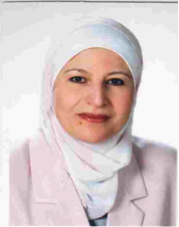
Emirates College For Advanced Education
Abu Dhabi, United Arab Emirates
Hashemite University
Zarqa, Jordan
salhassan@ecae.ac.ae, suha-al@hu.edu.jo
Suha Al-Hassan is an associate professor who is currently affiliated with the Emirates College for Advanced Education (ECAE) in Abu Dhabi, UAE. Prior to joining ECAE, Dr. Al-Hassan was the Dean of Queen Rania Faculty for Childhood, at the Hashemite University, Jordan. Dr. Al-Hassan has a Ph.D in Special Education and Applied Behavior Analysis from The Ohio State University in 2003. Dr. Al-Hassan has consulted for several national and international organizations, and (co)lead several national level programs/evaluations/strategies; she led the evaluation of the School Readiness Program, the early childhood reform program in Jordan, and the Better Parenting Program for UNICEF, co-developed standards for kindergartens and nurseries in Jordan and standards for special education accreditation programs, and consulted for UNICEF to lead the development of Early Learning Development Standards for the government of Libya. She also worked as a learning disabilities specialist, and a diagnostician. She extensively published in prestigious international journals. Her research interests include parenting programs, school readiness, children’s behavior, and inclusion.
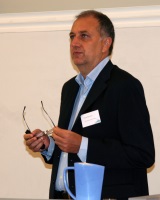
University of Naples “Federico II”
Naples, Italy
dario.bacchini@unina.it
Dario Bacchini is a full professor of Developmental Psychology at the University of Naples “Federico II”.
Since 2018 he has been the coordinator of PhD Course on “Mind, Gender and Language” of the University of Naples “Federico II” and since 2020 has been member of the Steering Committee of the Italian Association of Psychology (AIP). From 2011 to 2015, he was the Chief of the Degree Course in “Psychology Applied to Institutional Contexts” at the University of Campania. Research interests include moral development, bullying at school, antisocial and prosocial behavior, parenting, and effects of exposure to violent environments on child and adolescent adjustment. He has developed specific competences in monitoring and evaluating interventions aimed to prevent the negative effects of exposure to violence (e.g., school bullying, living in neighborhoods with high crime levels, harsh discipline and child maltreatment). He is also the author of a great number of scientific papers published in books or scientific journals on moral development, involvement in antisocial and prosocial behavior, parental disciplinary styles, academic achievement, and the psychological correlates of organic diseases. He was the Scientific Coordinator of the Research Unit in “Relevant Research National Project” (PRIN) in 2000 (Stability and change of self-image in adolescence), 2002 (Different perspectives in self-and other representations during adolescence and their influence upon the development of self-concept), 2005 (Personal and socio-cultural determinants concerning civic and moral behavior during transition from adolescence to adulthood), and 2007 (The influence of personal values on prosocial and antisocial behaviors during adolescence: The role of family and of the socio-cultural context). He was a consultant for the Regione Campania for monitoring and evaluating the school interventions on law-related education, and for the Ministry of Public Education for planning projects on “Bullying and Legality.” He serves on the editorial board of the Italian journals: Psychology of Education, Health Psychology, behavioral Sciences and Frontiers in Psychology. He has been a member of the following Scientific societies: AIP (Italian Association of Psychologists), EARA (European Association of Research on Adolescence), CIRMPA (Interuniversitary Center for the Study of Prosocial and Antisocial Behavior). He has been an elective member of the professional association of psychologists in Campania.
Child and Family Research
Eunice Kennedy Shriver National Institute of Child Health
and Human Development
Bethesda, Maryland, United States
bornstem@mail.nih.gov
Marc H. Bornstein is Senior Investigator and Head of Child and Family Research at the Eunice Kennedy Shriver National Institute of Child Health and Human Development. He holds a B.A. from Columbia College, M.S. and Ph.D. degrees from Yale University, and an honorary doctorate from the University of Padua. Bornstein was a J. S. Guggenheim Foundation Fellow, and he received a Research Career Development Award from the National Institute of Child Health and Human Development. He also received the C. S. Ford Cross-Cultural Research Award from the Human Relations Area Files, the B. R. McCandless Young Scientist Award and the G. Stanley Hall Award from the American Psychological Association, a United States PHS Superior Service Award from the National Institutes of Health, two Japan Society for the Promotion of Science Fellowships, three Awards for Excellence from the American Mensa Education & Research Foundation, the Arnold Gesell Prize from the Theodor Hellbrügge Foundation, an Award of Merit from the National Institutes of Health, and the Distinguished International Contributions to Child Development Award and the Distinguished Scientific Contributions to Child Development Award from the Society for Research in Child Development.
Bornstein has held faculty positions at Princeton University and New York University as well as academic appointments as Visiting Scientist at the Max-Planck-Institut für Psychiatrie in Munich, Visiting Fellow at University College London, Professeur Invité at the Laboratoire de Psychologie Expérimentale in the Université René Descartes in Paris, Child Clinical Fellow at the Institute for Behavior Therapy in New York, Visiting Professor at the University of Tokyo, Professeur Invité at the Laboratoire de Psychologie du Développement et de l’Éducation de l’Enfant in the Sorbonne in Paris, Visiting Fellow of the British Psychological Society, Visiting Scientist at the Human Development Resource Centre in Bamenda, Cameroon, Visiting Scholar at the Institute of Psychology in Seoul National University in Seoul, South Korea, Visiting Professor at the Faculty of Cognitive Science in the University of Trento, Italy, and Profesor Visitante at the Pontificia Universidad Católica de Chile in Santiago, Chile. Bornstein is President-elect of the Society for Research in Child Development, where he was a member of the Governing Council, and he sat on the Executive Committee of the International Society of Infancy Studies. Bornstein was named to the Top 20 Authors for Productivity in Developmental Science by the American Educational Research Association.
Bornstein is author/coauthor/editor/coeditor of 56 books, and he is author of or consultant on several children’s books, videos, and puzzles in The Child’s World and Baby Explorer series. His has published widely in experimental, methodological, comparative, developmental, and cultural science as well as neuroscience, pediatrics, and aesthetics. Bornstein has administered both Federal and Foundation grants, sits on the editorial boards of several professional journals, is a member of scholarly societies in a variety of disciplines, and consults for governments, foundations, universities, publishers, scientific journals, the media, and UNICEF. Bornstein is Editor Emeritus of Child Development and founding Editor of Parenting: Science and Practice. Visit www.cfr.nichd.nih.gov and www.tandfonline.com/HPAR.
Chair Professor and Head of Department
Department of Psychology
University of Macau
Macau, China
chang@umac.mo
Lei Chang, PhD, Chair Professor of Psychology and head of the Department of Psychology, University of Macau. Prior to joining the University of Macau, he was Professor and Department Chairman of the Department of Educational Psychology, the Chinese University of Hong Kong. He obtained his master and doctorate degrees from University of Southern California. His research interests include child development, evolutionary psychology, and applied measurement and statistics. He has published eight books (in Chinese) and over 150 refereed journal articles and has served on the editorial boards of many international journals, including Acta Psychologica Sinica, Educational and Psychological Measurement, Frontiers in Evolutionary Psychology and Neuroscience, Journal of Child Psychology and Psychiatry, Parenting: Science and Practice, and Personality and Social Psychology Bulletin. His h-index is 41 (from google scholar).
Professor of Psychological and Brain Sciences
Department of Psychological and Brain Sciences
University of Massachusetts Amherst
Amherst, Massachusetts, United States
kdeaterdeck@umass.edu
Kirby Deater-Deckard, Ph.D., is a consulting investigator on the Parenting Across Cultures study. Deater-Deckard is Professor of Psychological and Brain Sciences, and Director of the Healthy Development Initiative, at University of Massachusetts Amherst. He also serves as Chair Professor in the School of Psychology of Shandong Normal University (Jinan, PRC), and Fellow of the Association for Psychological Science. Deater-Deckard conducts research and teaches courses on biological and environmental influences on individual differences in social-emotional and cognitive development in childhood and adolescence. The emphasis in this work is on inter-generational transmission, gene-environment mechanisms, and home and school environments. His publications span developmental and family sciences and developmental psychopathology areas, with research currently and previously funded by NSF and NIH. Applications focus on parenting stress: identifying its antecedents and consequences, its adaptive and maladaptive features, and implications for parenting prevention and intervention programs. In Deater-Deckard’s current collaborative work on parenting, he is examining maternal cognitive and physiological self-regulation and its role in parenting stress and harsh caregiving, in the face of challenging child behavior and contextual stressors.
Rome University ‘La Sapienza’
Rome, Italy
laura.digiunta@uniroma1.it
Laura Di Giunta is research associate at the Interuniveristy Center for the Study of Prosocial and Antisocial Behavior, Sapienza University of Rome, and lecturer at Temple University Rome (General Psychology and Developmental Psychology courses). In 2014 she was a lecturer for the course on Developmental Psychology at the Sanford’s School of Social and Family Dynamics, Arizona State University, Arizona, United States. In 2012, she received a professional certificate in cognitive behavioral psychotherapy. In 2011 she won a research grant for young scholars funded by the Jacobs Foundation during the Jacobs Foundation Conference 2011 on Adolescence: Exploration and Self-Regulation of the Unknown. Between 2006 and 2010 she has been a visiting researcher at the Psychology Department of Arizona State University, gaining advanced education on longitudinal statistical analyses and emotional development. Between 2004 and 2012 she was a research assistant for the Genzano (Rome) Longitudinal Study on determinants of psychological adjustment in childhood, adolescence, and young adulthood. In 2003 she was a visiting student at the Groupe de recherche et d’information sur la paix et la sècuritè, Université de Montreal, Canada. Her current research focuses on the continuity and change of individual differences in predicting youth (mal)adjustment, accounting for socialization and cultural factors, specifically in emotion regulation, adjustment, and social competence. She also investigates individual differences in youth entrepreneurship in partnership with the Regional Government to evaluate policy implementation to encourage youth to engage in jobs that revitalize cultural heritage. She is the author of several scientific papers published in scientific journals on personality development in adolescence and young adulthood. She also serves on the editorial board of several international journals, such as Social Development, Developmental Psychology, and Journal of Psychopathology and Behavioral Assessment.
William McDougall Distinguished Professor of Public Policy
Professor of Psychology and Neuroscience
Duke University
Durham, North Carolina, United States
dodge@duke.edu
Kenneth A. Dodge is a clinical and developmental psychologist, having earned his B.A. in psychology at Northwestern University in 1975 and his Ph.D. in psychology at Duke University in 1978. Prior to joining the faculty at Duke, Dodge served on the faculty at Indiana University, the University of Colorado, and Vanderbilt University. Dodge’s research is directed toward understanding how problem behaviors such as delinquency, substance use, school dropout, and child abuse develop across the lifespan, how programs can be developed to prevent these problems, and how public policy can be shaped to improve the public health of communities. He formulated and tested a model of how children’s early experiences of adversity lead them to process social information in biased ways that unfortunately turn into problem behavior outcomes. He has used these findings to create interventions to promote child well-being. With colleagues, he developed the Fast Track intervention program to prevent chronic violence in high-risk children and the Family Connects Program to prevent child abuse in the first years of life.
Dodge has been involved in Parenting Across Cultures since its beginning in 2008.
Research Scientist
Duke University
Durham, North Carolina, United States
jennifer.w.godwin@duke.edu
Jennifer Godwin is a Research Scientist at the Center for Child and Family Policy at Duke University. She received her Ph.D. in Economics from the University of Maryland in 2004. She has been working on the Fast Track Project since 2003, where she manages the data center and performs statistical analyses for the project’s principal investigators. Jennifer has extensive programming experience using SAS, Stata, and MPlus to conduct many types of statistical analyses including hazard, mediation, multilevel, and longitudinal models. In 2013, she joined the PAC project to provide statistical and programming expertise. She has contributed to several articles for the Fast Track and PAC projects, and published in peer-reviewed journals including Pediatrics, Psychological Science, Societies, and the International Journal of Psychology.
Ph D in Psychology
University West
Trollhättan, Sweden
sevtap.gurdal@hv.se
Sevtap Gurdal is a Ph D in psychology at the Centre for Child and Youth Studies at University West, Sweden. She earned her PhD in Psychology from Gothenburg University, Sweden. Her research interests are parenting and children as well as gaming and its effects on young people. Earlier research projects include parent attributions and attitudes, and child agency in different contexts. Ongoing research is about professionals’ work and experiences about gaming disorder as well as gaming related to health. Between 2015-2016 she was project leader and collaborated with social services when a new parenting programme was established. She has also been involved in a regional project funded by Council of the European Social Fund in Sweden and examined young people’s feeling of belonging 2020-2022.
Clinical psychologist
Bangkok Chiang Mai Hospital
Chiang Mai, Thailand
mylltkn@gmail.com
Daranee Junla (Joy), PhD, is a lecturer in Psychology specializing in parenting interventions, child development, and family well-being, with a strong background in working with children with special needs. As a DIR/Floortime practitioner, she applies a developmental, relationship-based approach to support children with autism and other developmental challenges, fostering emotional connections and social engagement. She collaborates with the RICD Parenting Center and other organizations to develop evidence-based programs that empower caregivers and enhance child-rearing practices. Her work emphasizes community-based interventions, psychological support for parents, and early childhood development, particularly for children with developmental and learning challenges.
Research Professor, Sanford School of Public Policy
Director, Center for Child and Family Policy
Duke University
Durham, North Carolina, United States
lansford@duke.edu
Jennifer E. Lansford, PhD, is a Research Professor at the Duke University Sanford School of Public Policy and Director of the Center for Child and Family Policy, Durham, North Carolina, USA. She earned her doctorate in Developmental Psychology at the University of Michigan, USA. Her research focuses on the development of aggression and other behavior problems in youth, with an emphasis on how family and peer contexts contribute to or protect against these outcomes. She examines how experiences with parents (e.g., physical abuse, discipline, divorce) and peers (e.g., rejection, friendships) affect the development of children’s behavior problems, how influence operates in adolescent peer groups, and how cultural contexts moderate links between parenting and children’s behavior. She has consulted for UNICEF on the evaluation of parenting programs in several countries and on the development of a set of international standards for parenting programs. She serves in editorial roles on several academic journals and has served in a number of national and international leadership roles, including chairing the U.S. National Committee for Psychological Science of the National Academies of Sciences, Engineering, and Medicine. She is a Fellow of the American Psychological Association, the Association for Psychological Science, and the International Society for the Study of Behavioral Development.
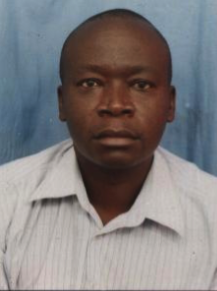
Associate Professor
Department of Educational Psychology &
Director Quality Assurance & Performance Management
Maseno University, Kenya
poburu@gmail.com, pauloburu@maseno.ac.ke
Paul Oburu obtained his Masters Degree in Educational Psychology from Moi University, Kenya and PhD. in Developmental Psychology from Gothenburg University, Sweden.
Oburu has an extensive background in research involving vulnerable adolescents and grandmothers affected and infected by HIV/AIDS related deaths. His initial research focus concentrated on caregiving stress, mental health and adjustment problems of grandmother caregivers and orphaned children who assume age inappropriate child caring responsibilities with the death of their biological parents. Oburu has also assessed caregiving challenges experienced by adolescent children taking care of other equally vulnerable siblings. His research training, expertise and experiences with the youth made vulnerable by the widespread HIV/AIDS related mortality and living in impoverished contexts made him particularly well suited to positively contribute towards the development and execution of viable and policy related research projects.
Additionally, Oburu has also been involved in research involving children taking care of other siblings, and the vulnerability factors related to HIV/AIDS infections amongst adolescents and also probable risk taking behaviors amongst this particular group. Specifically, he has also been involved in the development and design of effective intervention programs that could possibly be put in place to reduce the possibility of the youth getting involved in risky sexual and life endangering behaviors. Oburu has also had wealth of experiences in child vulnerability factors, useful and dedicated expertise in quality assurance issues and focus that varies from University management, initial involvement in secondary school and university teaching experiences, cross-cultural research, child development, vulnerability and resiliency research spanning over 10 years.

Sapienza University of Rome
Rome, Italy
concetta.pastorelli@uniroma1.it
Concetta Pastorelli is a full professor of Personality Psychology and since 2007 has been the director of the Master Degree Course in Health, Clinical and Community Psychology, Faculty of Medicine and Psychology, Sapienza University of Rome. From 1990-2012 she has directed the Genzano (Rome) Longitudinal Study on determinants of psychological adjustment in childhood, adolescence, and young adulthood with Gian Vittorio Caprara. She has been a member of the executive committee of the Interuniveristy Center for the Study of Prosocial and Antisocial Behavior, Sapienza University of Rome since 1999. In 2002, she was a Fulbright visiting scholar at Stanford University in the U.S. She is responsible for the international bilateral agreements that Sapienza University of Rome has with Universities such as Arizona State University in the U.S. and Universidad de San Buenaventura in Colombia.
Since 2009, she has worked on the dissemination of a universal school-based intervention in pre-adolescence entitled Promoting Prosocial and Emotional Skills to Contrast Externalizing Problems (CEPIDEAS) funded by the Italian Health Department and the Italian Mental Health Program. Her main research interests include individual differences during the entire life-span with specific attention to self-efficacy beliefs in the domain of emotional development and interpersonal relationships in adolescence, aggressive behaviors, parenting, and prosocial behavior. She is also the author of a great number of scientific papers published in scientific journals of child development and personality development in adolescence and young adulthood.
Research Scientist, Center for Child and Family Policy
Duke University
Durham, North Carolina, United States
william.rothenberg@duke.edu
Drew Rothenberg is a Research Scientist at Duke University. He holds a BA from North Carolina State University and MS and PhD degrees in child clinical psychology from the University of North Carolina at Chapel Hill. He is interested in preventing and treating the intergenerational transmission of deleterious parenting and child mental health. He has collaborated with UNICEF, is a member of the UNICEF Inclusive Policy Lab, and has taught and trained scientists and clinicians in Kenya, Italy, Sweden, and Thailand among other places. He is a winner of the United States’ National Institutes of Health’s Matilda White Riley Early Stage Investigator Award, is a practicing child clinical psychologist, and is the author or co-author of more than 70 scientific publications, including 2 books.
Research Scientist, Center for Child and Family Policy
Duke University
Durham, North Carolina, United States
askinner@duke.edu
Ann Skinner is a Research Scientist at Duke University’s Center for Child and Family Policy, in Durham, NC, USA. She manages the US data-collection team for Parenting Across Cultures and oversees the data hub for the Parenting Across Cultures international sites.
Her research focuses on the ways in which stressful community, familial, and interpersonal events impact parent-child relationships and the development of aggression and internalizing behaviors in youth. She has extensive experience in data management of multisite projects and in supervising teams for school- and community-based interventions and data collection.
Skinner has a Ph.D in developmental psychology from the University of Gothenburg, Sweden, a master’s degree in education, and B.A. in psychology, both from the College of William and Mary, with a focus on teaching students with emotional and learning disabilities. Before joining the Center in 2001, she worked as a special education teacher, trainer, and supervisor in the North Carolina public schools and at residential facilities for at-risk youth in Rhode Island and North Carolina.
Professor of Child and Youth Studies
University West
Trollhättan, Sweden
emma.sorbring@hv.se
Emma Sorbring is a Professor in Child and Youth Studies and Research Director at University West, Sweden. Her research and teaching interests lie in the area of children, adolescents and families. Her projects focus on teenagers’ internet use and parental strategies, sexual development in traditional and new settings (internet), dating violence, parental behaviour and children’s adjustment, and young people’s decision-making.
Distinguished University Professor of Psychology
Temple University
Philadelphia, Pennsylvania, United States
Laurence Steinberg, Ph.D., is the Distinguished University Professor and Laura H. Carnell Professor of Psychology at Temple University. He received his A.B. in Psychology from Vassar College and his Ph.D. in Developmental Psychology from Cornell University. Dr. Steinberg is a former President of the Division of Developmental Psychology of the American Psychological Association and of the Society for Research on Adolescence, former Director of the MacArthur Foundation Research Network on Adolescent Development and Juvenile Justice, and a member of the MacArthur Foundation’s Research Network on Law and Neuroscience. An internationally recognized expert on psychological development during adolescence, Dr. Steinberg’s research has focused on a range of topics in the study of contemporary adolescence, including adolescent brain development, risk-taking and decision-making, parent-adolescent relationships, school-year employment, high school reform, and juvenile justice. He served as a member of the National Academies’ Board on Children, Youth, and Families and chaired the Academies’ Committee on the Science of Adolescence. Dr. Steinberg was the lead scientist in the preparation of the American Psychological Association’s amicus briefs submitted to the U.S. Supreme Court in Roper v. Simmons, which abolished the juvenile death penalty; Graham v. Florida, which banned the use of life without parole for juveniles convicted of non-homicide crimes; and Miller v. Alabama, which prohibited the use of mandatory life without parole for all juvenile crimes.
Dr. Steinberg is the author of approximately 350 articles and essays on growth and development during the teenage years, and the author, co-author, or editor of 17 books. He has been the recipient of numerous awards, including the American Psychological Association’s Bronfenbrenner Award for Lifetime Contribution to developmental Psychology in the Service of Science and Society and its Award for Distinguished Contributions to Research in Public Policy, as well as the National Academy of Sciences Henry and Bryna David Lectureship. In 2009, Steinberg was named the first winner of the Klaus J. Jacobs Research Prize for Productive Youth Development. In 2013, he was inducted into the American Academy of Arts and Sciences.
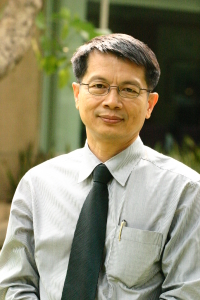
Psychologist
Assistant Professor in Psychology
Chiang Mai University
Chiang Mai, Thailand
sombat.tapanya@gmail.com
Sombat Tapanya received his PhD in psychology from the University of New Brunswick, Canada. He had worked as clinical psychologist at the Somdet Chaopraya Psychiatric Institute in Bangkok between 1972 and 1984, and had been assistant professor at the Department of Psychiatry, Faculty of Medicine, Chiang Mai University, Thailand, during 1985 – 2011. Dr. Tapanya’s research interest is in the area of violence prevention in children and youths. He has conducted research projects on positive discipline and bullying prevention through a grant from the Thai Health Promotion
Foundation. In addition, he is also working on research project on youth resilience with Dalhousie University in Canada.
During 2010-2013 he was coordinator for the Mekong Project on training psychiatrists and psychologists to provide treatment for traumatized patients in Thailand, Indonesia, Cambodia, and Burma with support from the German government. As psychotherapist Dr. Tapanya has been trained in Gestalt Therapy and EMDR (Eye Movement Desensitization and Reprocessing). He has been recently certified by EMDR Europe as trainer of EMDR and has been providing free treatment under the Mekong Project.

Universidad San Buenaventura
Medellin, Colombia
lilianauribe74@gmail.com
Liliana Maria Uribe Tirado (PhD) is a Research Professor at Universidad de San Buenaventura, Medellin, Colombia. She received her master’s degree in Psychology at the Universidad de San Buenaventura, Medellin, and a PhD in Psychology at Sapienza University of Rome (Italy). She is responsible for the international bilateral agreement that Universidad de San Buenaventura has with Universities such as Sapienza University of Rome in Italy. She is also actively involved in testing evidence based prevention programs, such as the CEPIDEAS programs (Promoting Emotional and Prosocial Skills to Counteract Externalizing Problem in Adolescence), in different regions of Colombia. Her main research focuses on parenting and child adjustment in different cultural contexts. She is also the author of a number of scientific papers published in journals of child development and parenting.
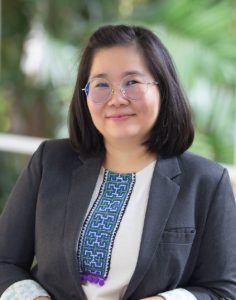
Chiang Mai University
Chiang Mai, Thailand
saengduean.y@cmu.ac.th
Saengduean Yotanyamaneewong, PhD, is a lecturer in Psychology. Her research focuses on various aspects of child and adolescent psychology, including parenting, family, children with special needs, and intervention. She has a background in child and adolescent assessments and therapy, with specific training and expertise in children with special needs. As PI or co- Investigator on several university- and NIH-funded grants, Saengduean laid the groundwork for
the proposed research by developing effective interventions for children with social and emotional difficulties delivered by psychologists who work at a primary care hospital.
In addition, with a team of collaborators, Saengduean documented the effectiveness of various intervention models for children with special needs. This body of work discusses the effectiveness of the DIR/floortime on children with autistic spectrum disorder (ASD) and their caregivers, as well as the benefit of animals in terms of promoting children’s social and emotional development. She also worked on measuring parental burnout in Thai context. Thus, working with children, adolescents, families, and parents are the essential topics of her interest.
Saengduean is also the author of a number of scientific papers published in journals and books of children, adolescents and parenting.

